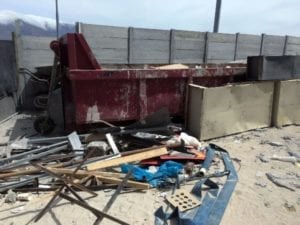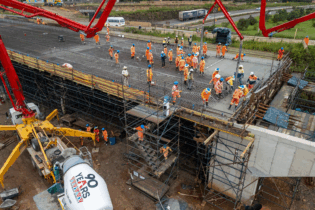DigiYard, conceptualised for an internal Arup ideas competition, will be a digital platform that looks to facilitate the flow of usable construction waste and surplus building material from construction sites to informal settlement upgrading projects.
The platform aims to reduce construction waste in landfills whilst addressing the need for affordable, quality building materials in the informal housing sector. Arup has made a commitment to help realise the United Nations’ Sustainable Development Goals (UN SDGs). The competition ‘Shaping [y]our better world’ required participants to incorporate at least three of the SDG’s into an idea that could be taken to execution with the intent of making a positive impact in the built environment. The engineering and construction industry is the world’s largest consumer of raw materials. Currently there is a break in the value chain with large quantities of usable materials going straight to landfill. Construction companies are also losing up to 30% of pre-tax profits in waste management and disposal costs. Many are looking for alternatives but claim there are no convenient mechanisms in place to change the business as usual approach of dumping at landfills. At the same time, there is a dire need for affordable, quality materials in informal settlements.DigiYard, created by Kausar Khan, Jaco Kemp and Carin de Beer of Arup, is currently in pilot phase.
The objective of the pilot is to learn, gather data and progress towards turning this idea into a sustainable platform with longevity in the sector. Arup have engaged external partners in construction industry operating both in the formal and informal sector to help execute this. Most recently, there has been a proof of concept between two such organisations confirming a model of willing seller/willing buyer. The long-term vision is for DigiYard is to empower and enable people living in informal settlements to improve their living conditions by allowing access to a broad range of quality, cost effective building materials. Through the data gathered from the platform, construction companies will be able to have a detailed understanding of their material waste streams in order to minimise waste and increase efficiencies. The hope is that the platform will eventually operate as a progressive web or mobile application including features such as machine learning algorithms to enable the smart recognition of materials. This would allow quick measurements and descriptions of items to be uploaded to a cloud portal instantaneously, providing convenience to suppliers. Mobile payments and a transport option to providing door to door delivery will also be explored in future to provide convenience for end-users.





